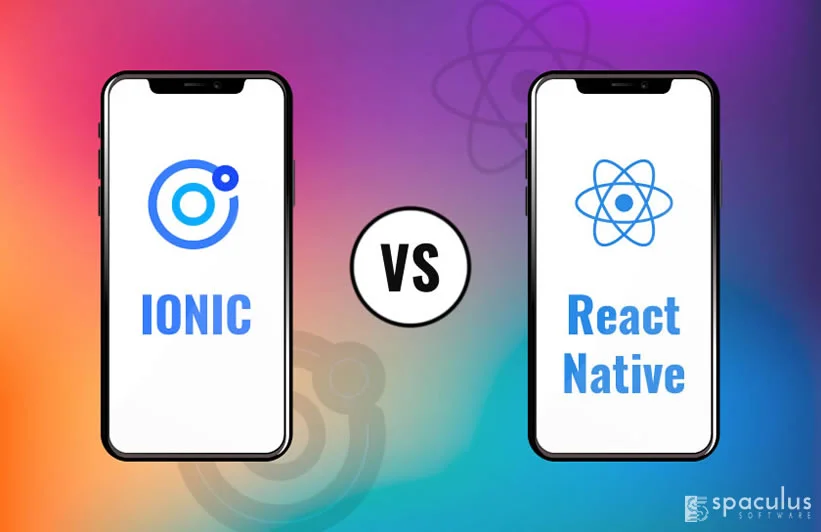
The phrase “There’s an app for everything” is more relevant than ever. With over 3 billion smartphone users worldwide and growing every day, businesses can no longer ignore the power of mobile apps. Today, having a mobile app is not just an option; it’s a necessity for businesses looking to reach and engage with their target audience.
When companies decide to invest in mobile app development, they are often stuck choosing the right technology. React Native and Ionic are two of the most popular frameworks, but which one is better for your project? Let’s break it down.
React Native (RN)
React Native, developed by Facebook, is a powerful framework for creating native-like mobile apps. It uses JavaScript and React to build apps that feel and perform just like native apps (the ones you download from the App Store or Google Play).
Ionic
Ionic is a framework for building hybrid apps—these apps are web-based but wrapped in a mobile shell. It uses familiar web technologies like HTML, CSS, and JavaScript and relies on Cordova or Capacitor to access native device features.
React Native follows the principle of “Learn Once, Write Anywhere.” This means you can write your code once and reuse most of it across iOS and Android with slight platform-specific tweaks.
Ionic follows the “Write Once, Use Anywhere” approach, where most of the code can be reused without much modification, making it faster for cross-platform development.
When it comes to performance, React Native is the clear winner. Why? React Native apps offer near-native performance because they use native components rather than rendering through a web view.
On the other hand, Ionic apps run inside a web view, which can sometimes lead to slower performance and less responsiveness, especially in apps with complex animations or heavy processing. This makes React Native a better choice for performance-critical apps, such as social media or gaming apps.
Ionic takes the lead when it comes to code reusability. Its web-based approach allows developers to reuse a large portion of the codebase across multiple platforms, reducing the overall development time.
React Native, although reusable, often requires more customization for different platforms, which can extend development time but results in a more polished app.
React Native wins in accessing hardware features like the camera, GPS, and Bluetooth without relying on additional tools. It directly integrates with native modules, making the app experience seamless.
Ionic uses Cordova or Capacitor to access hardware features, which can sometimes lead to compatibility issues and slower performance compared to React Native.
React Native has a massive developer community backed by Facebook. This means extensive documentation, thousands of third-party plugins, and plenty of help available online.
Ionic, although not as large as React Native’s community, has strong support from web developers and a growing ecosystem of tools and plugins.
If you’re on a tight budget and need fast development, Ionic is a great option. Its cross-platform capabilities and extensive code reuse mean reduced development costs.
However, React Native provides more robust apps, which might take longer and cost more but deliver a better experience to end-users.
Choosing between React Native and Ionic depends on your project requirements. Here’s a quick guide:
Choose React Native if:
Choose Ionic if:
Both React Native and Ionic are excellent choices for mobile app development, but the right choice depends on your specific needs.
No matter which framework you choose, both can help you build engaging, user-friendly mobile apps that meet your business goals.
App Development